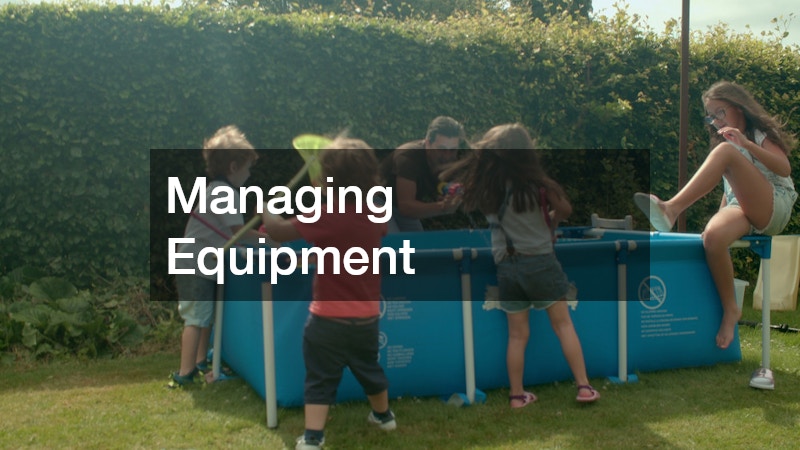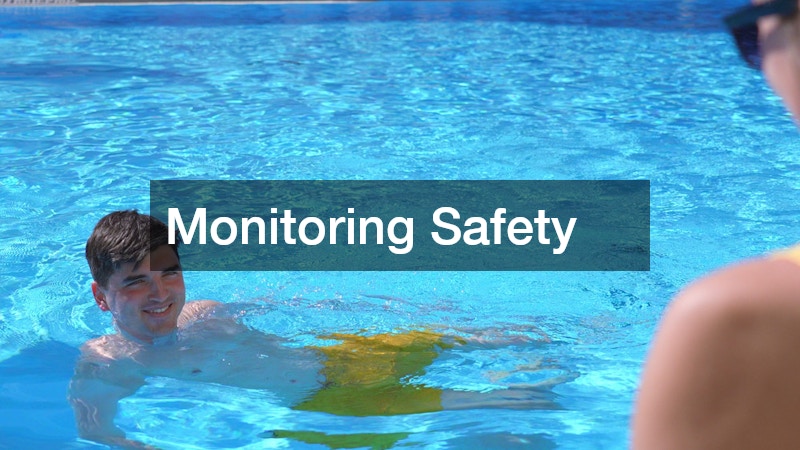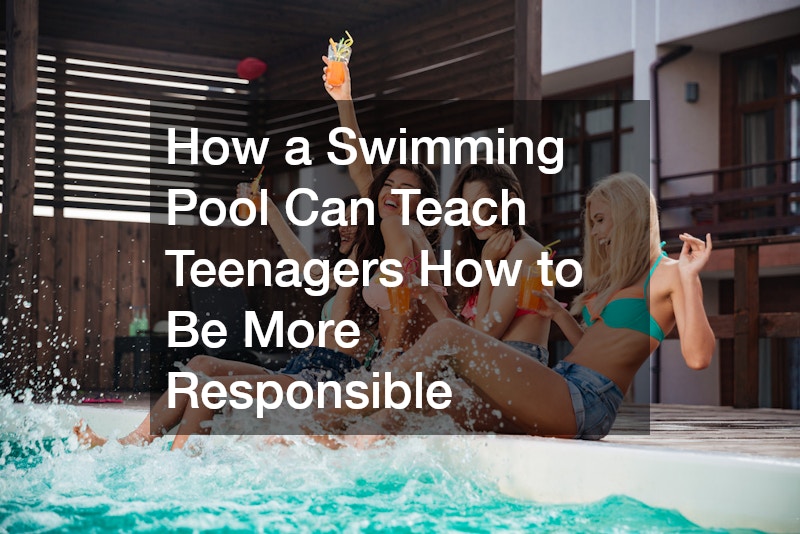Raising responsible teenagers is no easy task, but often the best lessons in accountability come from everyday experiences. While school and extracurricular activities provide structure and discipline, the home environment can be just as formative. Surprisingly, something as simple as adding a pool to your backyard can become a powerful tool in shaping responsible behavior in adolescents. More than just a source of fun or relaxation, having a pool introduces a wide range of real-life scenarios that require teens to be more responsible in their actions and decision-making.
From learning how to keep shared spaces clean to respecting safety rules, a pool presents daily opportunities for teens to engage with responsibilities that have immediate, visible consequences. Whether it’s keeping track of when to test the water, understanding how to handle an emergency, or staying on top of scheduled maintenance, each task builds life skills that go far beyond swimming. These lessons are valuable not just because they instill good habits, but because they create teachable moments rooted in real ownership and shared family responsibility.
By actively participating in these tasks, teenagers gain more than chores. They gain confidence, learn the importance of following through, and start to appreciate the impact of their decisions. Through this lens, a pool is more than a recreational feature. It becomes a classroom where teens learn what it truly means to be more responsible.
1. Learning Pool Rules

Establishing rules for pool use is often the first step in creating a safe and enjoyable swimming environment. These rules, such as no running near the pool, no diving in shallow areas, or requiring adult supervision, help set clear expectations for behavior. When teenagers are introduced to these guidelines and encouraged to follow them consistently, they begin to understand the importance of boundaries and personal accountability.
A pool contractor typically advises homeowners on these essential safety protocols during installation, making it easier for families to enforce them from day one. Parents can take this opportunity to involve teens in the conversation, explaining not just the rules themselves but the reasoning behind them. When teens know that skipping a rule could lead to injury or damage, the rules become more than a list—they become tools for protecting themselves and others.
By learning, respecting, and even helping to enforce these rules with friends or younger siblings, teenagers gain a sense of leadership and maturity. These lessons translate into broader contexts, such as following driving laws or school regulations.
2. Cleaning as a Routine
Cleaning is often viewed as a chore, but when done regularly, it fosters a sense of pride and ownership. Teenagers tasked with skimming leaves, brushing walls, or emptying baskets in a pool environment quickly learn that maintenance is a continuous effort, not a one-time task. They begin to notice how consistent action leads to long-term results, a mindset that’s critical to responsibility.
A pool builder usually emphasizes the importance of cleanliness during the setup process, recommending equipment and maintenance schedules to ensure everything runs smoothly. When teenagers are included in that schedule, perhaps by being assigned weekly tasks, they see how their contribution directly affects the quality and enjoyment of the pool. It helps them realize that neglecting even small responsibilities has noticeable consequences.
This experience empowers them to be more responsible in other areas, such as taking care of their rooms, helping around the house, or even managing personal hygiene and schoolwork. What starts as a simple cleaning duty becomes a framework for understanding the role of consistent effort in achieving long-term success.
3. Managing Equipment

Behind the scenes of most swimming pools is a network of equipment that keeps the water clean, safe, and balanced. Filters, pumps, timers, and chemical dispensers all play critical roles, and understanding how they work can be a valuable learning opportunity. Giving teens responsibility for checking on these systems offers them a chance to work with tools, follow instructions, and troubleshoot problems.
Parents can slowly introduce teenagers to each piece of equipment, explaining what it does and why it’s important. Over time, teens can begin to take on responsibilities like backwashing the filter or checking the pump schedule. Monitoring these systems regularly gives them a tangible sense of control and impact.
Taking on technical responsibilities builds critical thinking, confidence, and a deeper appreciation for how things work. This hands-on experience teaches teens to be more responsible with other types of equipment and technology, from household appliances to school laptops and beyond. They learn to value not just how things function, but the effort it takes to maintain them.
4. Scheduling Use Time
When several family members share a pool, scheduling becomes essential. Teenagers who want time to swim must learn to coordinate with others, avoid overuse, and stick to agreed-upon schedules. Learning how to manage their time with the pool can serve as a small but effective training ground for larger time-management responsibilities later in life.
Swimming pool installers often note that planning pool usage helps reduce wear and tear, especially when managing large households or frequent guests. Parents can create a calendar or sign-up sheet, encouraging teens to take charge of their preferred time slots. When they realize they must plan to secure pool time, teens become more aware of the value of scheduling and communication.
Over time, this practice of planning and accountability encourages teens to be more responsible with how they allocate their time in general. Whether it’s managing after-school activities, jobs, or family obligations, learning to think ahead and honor commitments is a foundational life skill that begins in even the smallest routines, like booking a swim.
5. Monitoring Safety

Safety should always be the top priority when it comes to any recreational water activity. Teens who learn to monitor their surroundings while swimming or supervising others quickly come to appreciate the seriousness of this responsibility. Whether it’s recognizing when someone is struggling in the water, being aware of weather conditions, or simply making sure no one is running on slippery surfaces, safety awareness encourages mindfulness.
With inground swimming pools, the stakes are often higher due to their depth and permanence. These pools tend to attract more activity, which increases the need for consistent vigilance. Parents can teach teens how to conduct safety checks, ensure floats or diving boards are secure, and maintain unobstructed access to life-saving equipment. Involving teens in these tasks helps them take ownership of everyone’s well-being, not just their own.
When teenagers take active roles in pool safety, they build habits that extend far beyond the backyard. They develop an instinct to observe, assess, and act accordingly. These are essential traits for anyone who wants to be more responsible in all areas of life.
6. Understanding Costs
Many teenagers are unaware of the financial investment that goes into maintaining a home, let alone a pool. From water bills to energy costs to equipment replacement, there’s real value in helping them understand the expenses involved. This financial transparency can be an excellent opportunity to teach them about budgeting, care, and long-term planning.
When something breaks and a pool repair service is required, involving teens in the diagnosis or service call is a great way to open their eyes to the cost of negligence or wear and tear. They can sit in while the professional explains what happened and even assist in minor tasks that follow. Seeing the price tag on a fix adds weight to their understanding of responsibility.
This awareness often translates into more thoughtful behavior. They may turn off lights when leaving a room, take better care of their personal belongings, or be more cautious in general. Understanding the financial aspect of pool ownership encourages them to be more responsible not only with money but with the care and respect they show to shared property.
7. Handling Emergencies

Emergencies can happen unexpectedly, and teenagers who are trained to stay calm and take action in those moments develop a heightened sense of personal responsibility. Whether it’s a minor injury, a mechanical issue, or a water quality concern, knowing how to react quickly and appropriately is a life skill that will benefit them for years to come.
A local pool service often provides families with basic emergency protocols and maintenance guides. Parents can extend this information to their teens by walking them through what to do in various scenarios, like someone slipping, power outages affecting equipment, or cloudy water signaling an imbalance. Role-playing these situations is a proactive way to prepare teens for real-life problems.
By giving teens the confidence to respond instead of panic, they start to feel a sense of control over their environment. This preparedness doesn’t just apply to the pool. It’s a transferable mindset that helps them manage car troubles, health emergencies, or academic pressures. Preparing for the unexpected is one of the most powerful ways to help teens be more responsible in life.
8. Respecting Boundaries
Respecting boundaries, both physical and social, is a core part of growing up. Pools present many natural boundaries that teens must learn to recognize and respect. These include where it’s safe to jump, how many people should be in the pool at once, and how to share the space with family or friends. Establishing and honoring these limitations encourages thoughtfulness and mutual respect.
The pool liner, for example, is not just a design feature; it plays a vital role in pool integrity. Teaching teenagers not to wear shoes in the pool, avoid sharp objects, or misuse equipment helps them understand that even subtle boundary violations can lead to real damage or costs. They learn that boundaries exist not to restrict them, but to preserve and protect.
This concept carries over into everyday life, where respecting others’ personal space, property, and time is crucial. Teens who recognize the value of such limits are more likely to think before they act and consider the consequences of overstepping. In this way, pool-related boundaries become a microcosm for what it means to be more responsible in personal and social relationships.
9. Teamwork at Home
Household teamwork becomes especially important when caring for a shared resource. A swimming pool is not something one person can maintain alone—it requires cooperation. When teenagers are assigned specific roles in caring for the pool, they learn how to contribute meaningfully to a group effort. It reinforces the idea that responsibility doesn’t always mean going solo. It often means showing up for others.
Families can develop routines where teens take turns with cleaning, monitoring chemical levels, or checking on safety equipment. Holding regular check-ins to review everyone’s efforts creates a system of accountability. This kind of shared task gives teens a clear place in the family dynamic, showing them how their contribution matters and is valued.
These experiences help teenagers see themselves as active members of a team. Whether it’s at home, in school projects, or future workplaces, they understand the importance of doing their part and communicating effectively. By participating in group tasks like pool care, they learn to be more responsible in any team-based setting.
10. Growth Through Fun
Responsibility doesn’t have to feel like a burden—in fact, it can be woven into fun and leisure. When teenagers associate responsibility with enjoyable experiences, they’re more likely to embrace it willingly. This makes the process of learning feel natural and integrated rather than forced or punitive.
A reputable pool company often emphasizes that the best pool ownership experiences come from a balance of enjoyment and care. Teens who are allowed to swim freely, but are also held accountable for rules and maintenance, start to appreciate that responsibility is what sustains their fun. They realize that taking care of something makes it more rewarding in the long run.
This lesson is a powerful one: that joy and discipline aren’t mutually exclusive. Teens begin to understand that being mature doesn’t mean giving up what they love—it means nurturing it. When they connect these dots, they start to be more responsible not just to maintain privileges, but to take pride in the things they enjoy and share.
More than Fun
A swimming pool is often seen as a symbol of summer fun and relaxation, but its value can extend far beyond leisure. For families with teenagers, a pool can become a practical and powerful environment for teaching life lessons. From learning safety protocols to managing cleaning schedules and handling equipment, teens are presented with a wide variety of tasks that develop accountability, foresight, and maturity. Each pool-related activity becomes an opportunity to help young people be more responsible.
More importantly, these lessons are taught not through lectures or punishments but through experience. When teenagers feel that they are part of something important, something they help protect and enjoy, their willingness to be accountable grows. They begin to realize that the freedom to enjoy something comes hand in hand with the duty to care for it.
A pool can be a learning tool. By inviting teens into the process of care, management, and enjoyment, families create a unique environment for growth. With the right guidance, teens don’t just swim. They rise to the challenge and be more responsible, both in the backyard and far beyond.



